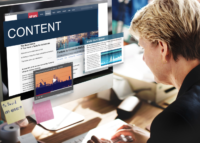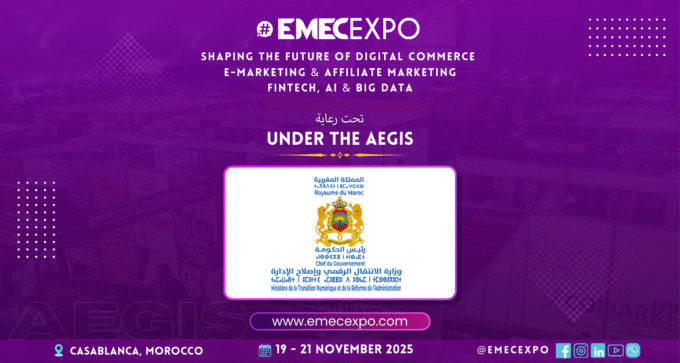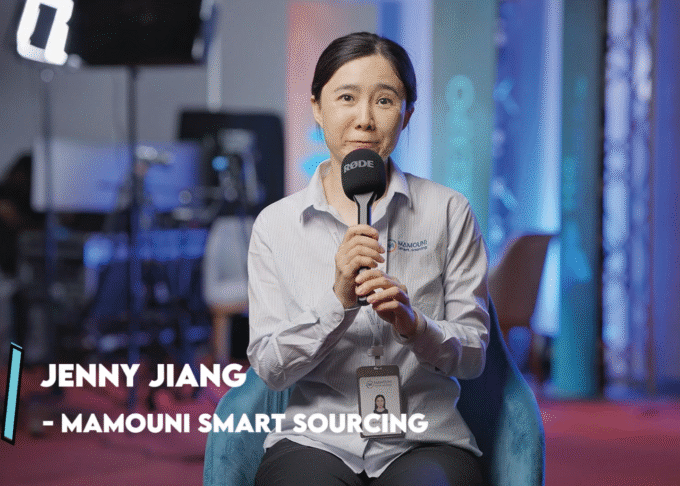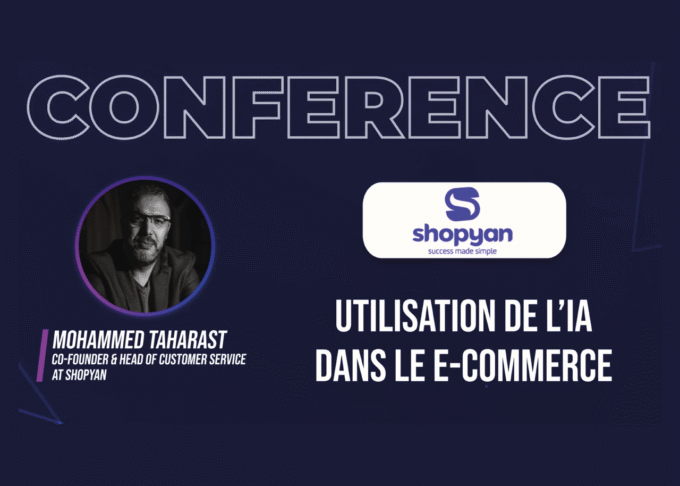The EMEC EXPO 2024 live podcast, “China Import Secrets: Sourcing & Challenges Explained,” offered a deep dive into the intricacies of importing goods from China, a crucial topic for e-commerce businesses, offline retailers, and entrepreneurs across the Gulf, Europe, Africa, and even Morocco. Hosted by (Mohammed EL MAKHROBI) of WE DO CONTENT, the session featured expert insights from (Ayoub MAMOUNI), CEO of Mamouni Smart Sourcing, a China-based sourcing company. The discussion provided a narrative blend of expert opinion and factual reporting, utilizing real-world examples to illuminate the challenges and offering solution-oriented advice for navigating the complexities of international trade.
The Transformation of Sourcing: From Traditional to Digital and Beyond
Ayoub MAMOUNI highlighted the significant evolution in sourcing over the last decade. Traditionally, importing from China often involved direct travel or relying on platforms like AliExpress or offline agents. However, the rise of digital platforms such as Alibaba, Made-in-China, and 1688 has democratized access to a vast network of suppliers, offering greater choice and competitive pricing. This shift has empowered traders, eliminating the absolute necessity of physically visiting China for initial sourcing.
Despite the increased accessibility, this digital transformation has brought forth a new set of challenges. While platforms offer a wider selection, verifying the (supplier credibility) and (avoiding scams) have become paramount concerns. Moreover, ensuring that the received product matches the ordered specifications and quality remains a significant hurdle.
Case Study: The Perils of Unverified Suppliers and Quality Discrepancies
Ayoub MAMOUNI illustrated these challenges with a compelling case study. A client involved in the (lighting business) ordered “rocket x” lights. Despite confirming specifications with the Chinese supplier, the received shipment, delayed by a month, consisted of 30,000 units of significantly lower quality and heavier due to added iron. This discrepancy not only impacted the product’s marketability but also led to increased customs duties as valuation was based on weight. This example underscores the critical need for (supplier verification) before committing to large orders.
Navigating the Labyrinth of Logistics: A Focus on Africa
The podcast also shed light on the often-opaque world of international shipping, particularly concerning deliveries to Africa. Ayoub MAMOUNI explained that while a tracking number might be available initially, it often becomes inactive upon reaching the destination country in Africa. This is primarily because shipments frequently utilize a method known as (M-Bag), where goods travel with passengers as part of their baggage allowance (typically up to 23 kg) via airlines like Ethiopian Airlines. This system, while sometimes more accessible, lacks a consistent tracking infrastructure within the African countries.
Furthermore, logistical complexities such as transit times and potential delays at connecting airports (e.g., Addis Ababa) can significantly impact delivery schedules. The presence of a large number of African traders in China also means that customs processes can be bottlenecked, potentially causing delays for individual shipments.
The Double-Edged Sword of Cost Optimization and Quality Control
A crucial point raised by Ayoub MAMOUNI concerned the trade-off between cost and quality. He noted that many sellers prioritize offering the (cheapest) options to maximize their margin, sometimes at the expense of product quality. When presented with choices between a $1 and a $3 version of the same product, buyers often opt for the cheaper one, potentially leading to customer dissatisfaction and returns. This highlights the importance for buyers to actively emphasize (quality products) even if it means a slightly higher upfront cost.
Solution-Oriented Strategies for Successful Sourcing
Drawing on his company’s experience, Ayoub MAMOUNI outlined several solution-oriented strategies for mitigating risks and ensuring smoother import processes:
- Thorough Understanding of Regulations: Importers must have a (comprehensive understanding of all legal and regulatory frameworks), particularly concerning customs procedures in both the origin and destination countries. This includes being aware of necessary licenses, certifications, and potential tariffs.
- Rigorous Supplier Verification: Prioritizing (supplier verification) is crucial. While platforms offer basic information, seeking references and potentially engaging third-party verification services can minimize the risk of scams and unreliable suppliers. Mamouni mentioned his company’s practice of having (established accounts) and not necessarily working with every new request, emphasizing a degree of selectivity.
- The Value of Sourcing Agents: Engaging a reputable sourcing agent based in China can provide significant advantages. These agents can conduct (verification) at the factory level, ensuring product quality and compliance before shipment. They can also handle logistics, documentation (** (all COC documents, all authorization documents, everything door-to-door)**) and customs clearance, providing an end-to-end service.
- Pre-Shipment Inspection and Samples: Requesting (samples) before placing bulk orders is vital to assess product quality. Conducting or arranging for pre-shipment inspections further safeguards against receiving substandard goods. The case of the air conditioner illustrates the benefit of initial sample testing to identify potential issues.
- Clear Communication and Specifications: Providing suppliers with detailed product specifications and maintaining clear communication throughout the process is essential to avoid misunderstandings.
- Secure Payment Terms: For larger transactions (e.g., exceeding 200,000 MAD), Mamouni’s company typically requires a 30% (advance payment) and the remaining 70% (upon shipping) or arrival at port, offering a balanced approach to risk management. Establishing clear contractual agreements can also provide legal recourse in case of disputes.
- Risk Diversification: For those new to importing, starting with smaller quantities or working with agents who consolidate shipments from multiple buyers can help (distribute the risk).
Advice for Aspiring E-commerce Entrepreneurs in Morocco
Responding to a question about starting an e-commerce business in Morocco, Mamouni advised focusing on (local products) initially. This allows for easier management of logistics and quality control before venturing into international sourcing. He also suggested a (seasonal) approach, adapting product offerings to current market demands, while emphasizing the importance of identifying profitable products and building a strong customer base around them.
Case Study: The Pitfalls of Trusting Unverified Agents
A stark reminder of the risks involved in international trade came from an attendee who recounted losing 12 million MAD to a Moroccan-based intermediary entrusted with the import process. This case underscores the importance of (dealing with someone you know well) or seeking reliable referrals when engaging agents. Mamouni emphasized the importance of formal contracts, preferably with established companies in both the origin and destination countries, to protect both the buyer and the service provider.
Private Label Opportunities and Minimum Order Quantities
For entrepreneurs interested in creating their own branded products ((my own label)), Ayoub MAMOUNI confirmed that Chinese manufacturers are often willing to produce goods according to specific designs. However, he highlighted the common requirement of a (minimum order quantity), often starting around 500 pieces but potentially ranging from 500 to 5000 depending on the product and negotiation with the factory. Starting with a smaller initial order to assess quality before scaling up is a prudent approach.
Navigating Customs Delays and Additional Costs
The podcast also addressed the frustrating issue of goods being held up at customs ((your goods in customs)). Ayoub MAMOUNI emphasized the importance of working with agents who possess (knowledge of legal procedures) and can anticipate potential issues such as the need for laboratory testing for certain product categories (e.g., cosmetics). Understanding potential additional costs associated with delays, such as warehouse fees ((warehouse fees) which are calculated based on volume and weight), is also crucial for accurate cost projections.
Conclusion: Informed Decisions for Navigating the Global Marketplace
The EMEC EXPO 2024 podcast provided valuable insights into the evolving landscape of importing from China. While the digital age has made sourcing more accessible, it has also introduced new complexities and risks. By emphasizing the importance of due diligence, supplier verification, quality control, and a thorough understanding of logistical and regulatory processes, experts like Ayoub Mamouni equip businesses with the knowledge to navigate these challenges effectively and succeed in the global marketplace. The numerous case studies and practical advice shared during the session serve as a crucial guide for both newcomers and experienced players in the world of international trade.















